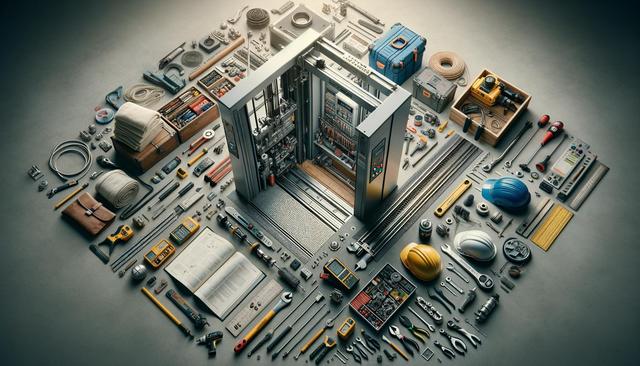Understanding the Role of an Elevator Technician
Before diving into the specifics of elevator repair technician training, it’s important to understand the role itself. Elevator technicians are responsible for installing, maintaining, and repairing elevator systems, escalators, and other types of vertical transportation equipment. These professionals work in a variety of settings, including residential buildings, commercial complexes, hospitals, and industrial facilities. The job requires not only mechanical aptitude but also a strong understanding of safety standards and electrical systems. As urban development continues to grow vertically, the demand for skilled elevator mechanics is expected to rise steadily. Training programs are designed to meet this need by equipping students with the technical skills and practical knowledge necessary to succeed in the field.
Core Components of Elevator Mechanic Training Programs
Elevator repair technician training programs are structured to provide a balanced mix of classroom instruction and hands-on experience. These programs typically cover a wide range of topics that are essential for understanding how different elevator systems operate. Some of the foundational subjects include:
- Electrical theory and control systems
- Hydraulic and traction elevator mechanisms
- Blueprint reading and mechanical drawing
- Occupational safety and health regulations
- Preventative maintenance procedures
Students also learn how to diagnose faults in elevator systems and apply appropriate repair techniques. In addition to technical training, many programs incorporate soft skills such as communication and teamwork, which are crucial when working on job sites with other tradespeople or interacting with clients.
Hands-On Learning and Apprenticeship Opportunities
One of the most valuable aspects of elevator mechanic training is the opportunity for hands-on learning through apprenticeships. Apprenticeships combine classroom education with real-world job experience under the supervision of licensed professionals. These programs often last several years and allow trainees to gradually take on more complex tasks as they gain proficiency. During this period, apprentices may work on:
- Installing new elevator systems
- Performing routine inspections
- Troubleshooting and repairing faulty components
- Updating older systems to meet current code requirements
This practical experience is critical not just for developing technical skills but also for gaining a deep understanding of industry standards and safety practices. Most jurisdictions require a certain number of apprenticeship hours before eligibility for licensure or certification exams.
Certifications and Licensing Requirements
After completing a training program, elevator repair technicians often need to meet specific licensing or certification requirements depending on the region in which they plan to work. Licensing ensures that technicians have met the necessary educational and practical experience standards and are qualified to perform repairs and installations safely. Certification exams typically test knowledge in areas such as:
- Electrical and mechanical systems
- Safety codes and compliance
- Emergency procedures
- System troubleshooting
Continuing education is also a significant part of maintaining certification. As technology evolves, elevator systems become more complex, and technicians must stay current with industry innovations and code changes. Ongoing professional development helps ensure long-term success and adaptability in the field.
Career Outlook and Advancement Opportunities
The career outlook for elevator repair technicians is promising, with steady demand projected in the coming years. As infrastructure ages and new buildings continue to be developed, the need for skilled professionals to maintain and repair elevators will persist. Entry-level technicians can expect to start with foundational responsibilities, but with experience, there are opportunities for advancement. Career paths may include:
- Lead technician or supervisor roles
- Specialization in advanced elevator systems
- Project management positions
- Training and mentoring new apprentices
Some technicians also choose to start their own service firms or move into related fields such as elevator inspection or equipment sales. The combination of technical skills, certification, and experience opens the door to a wide range of professional possibilities.
Conclusion: Is Elevator Mechanic Training Right for You?
For individuals who enjoy problem-solving, working with their hands, and contributing to the safety and functionality of modern buildings, elevator mechanic training can offer a rewarding career path. The training is comprehensive and designed to prepare students for the physical and technical demands of the job. With a solid foundation in both theory and practice, graduates are well-equipped to enter a field that offers not only job security but also opportunities for growth and specialization. Whether you’re starting a new career or looking to transition into a skilled trade, elevator repair technician training provides the tools and experience needed to succeed in a high-demand, essential industry.




Leave a Reply